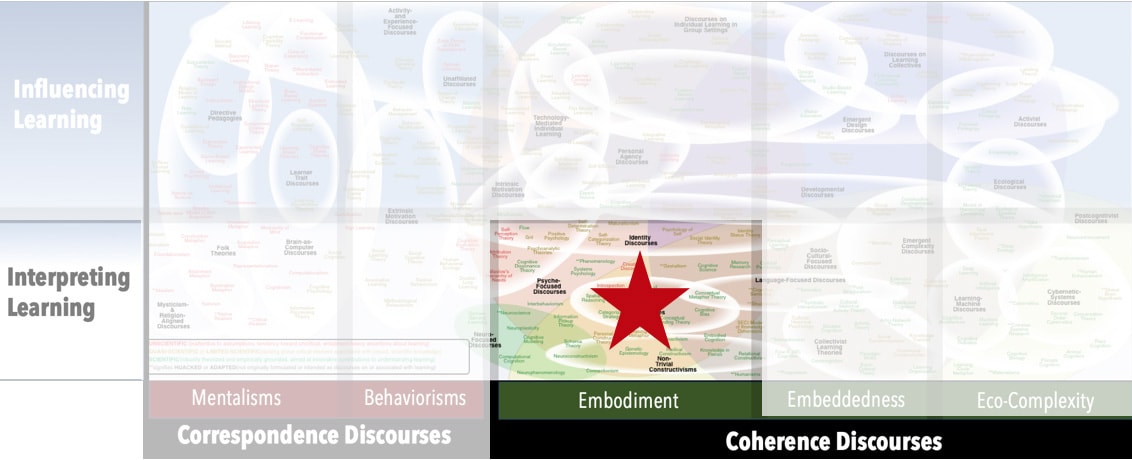Focus
Explaining one’s own behaviorsPrincipal Metaphors
- Knowledge is … scope of possible actions
- Knowing is … explained behaviors
- Learner is … self-observer
- Learning is … self-explaining
- Teaching is … N/A
Originated
1960sSynopsis
Self-Perception Theory runs counter to the commonsense assumption that one’s attitudes determine one’s behaviors. The theory asserts that one’s attitudes arise as one derives rational explanations of one’s own overt behavior in terms of attitudes that must have caused it – in the same way one attempts to explain others’ actions. Associated discourses include:- Self-Expansion Theory (Arthur Aron, Elaine Aron, 1990s) – a perspective founded on the premise that a primary motivation of humans is to enhance senses of self (i.e., “self-expand”) by integrating identifications with others and aspects of others’ identities into their own senses of self
Commentary
Self-Perception Theory was originally proposed as an alternative to Cognitive Dissonance Theory, which posited that attitude change is linked to efforts to reduce mental discomfort. Both theories appear to provide plausible explanations in some cases, but the latter has proven to be a better explanatory frame across a wider range of situations and empirical studies.Authors and/or Prominent Influences
Daryl BemStatus as a Theory of Learning
Self-Perception Theory is principally a theory of identity, but it can also be understood as a theory of learning – one that is specifically focused on the role of self-awareness and personal attitudes in channeling and framing one’s learning.Status as a Theory of Teaching
Self-Perception Theory is not a theory of teaching.Status as a Scientific Theory
While there is some evidence to support Self-Perception Theory, there is considerable evidence that contradicts it (or, at least, that it can’t explain).Subdiscourses:
- Self-Expansion Theory
Map Location

Please cite this article as:
Davis, B., & Francis, K. (2022). “Self-Perception Theory” in Discourses on Learning in Education. https://learningdiscourses.com.
⇦ Back to Map
⇦ Back to List
